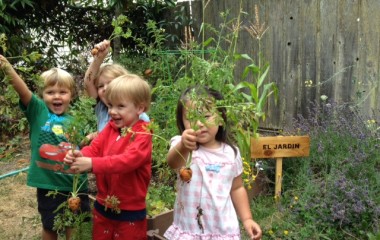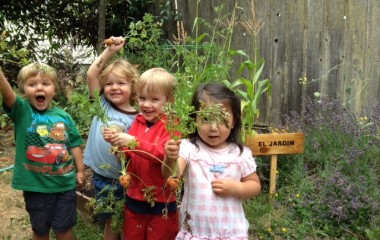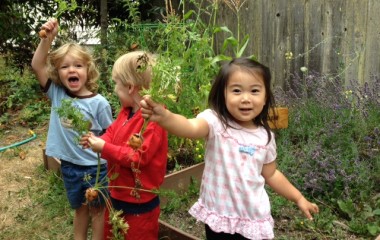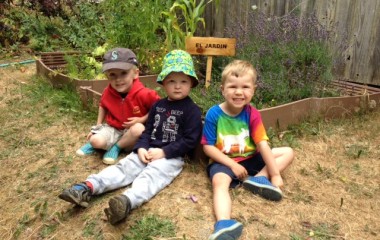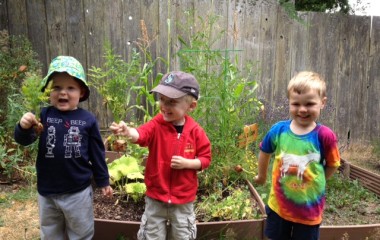This Baby Blues comic from July 6th, 2015 made me think of all the fun our sons had during the summer months…running around the neighborhood, playing at their great-grandfather’s farm, camping, going on hikes, exploring in the woods, planting our ‘eating’ garden or having a quiet afternoon reading a book up in our large magnolia tree. Most of their summer was ‘free to do what they wanted to do’ and most of that took place outside.
When they were little their ‘free-range world’ was mostly in our backyard. They felt so big when they were allowed to roam around without an adult (although I was watching them from the kitchen window). They had a dirt pile, water to make lakes with, a tree with a tire swing and their own little eating garden. They were in awe of the canning gardens back on the farms in Ohio but just as proud of their 3 ears of corn as their Great Grandpa was with his field of corn.
It is so important to let your child develop independence and confidence while they play outside. There are many studies on the importance of nature experiences for children. The Nebraska Early Learning Guidelines list 4 ways toddlers can connect with nature and how this experience benefits the child.
- Social Emotional – They develop a sense of self that includes independence, confidence and competence.
- Physical – Using fine motor skills they explore their environment and manipulate objects
- Language – While outside the child communicates for a variety of purposes in a variety ways. They use facial expressions, body movement and positions, as well as their words.
- Cognitive – the child develops scientific knowledge through active exploration of the environment.
Being outside stimulates your child to think, imagine, explore, create and enjoy the world around them. They feel connected with the environment and have purpose for their interactions – using their five senses they are able to be scientist in a world that has patterns, colors, texture, sound, scents and things that taste good!
You may not be ready to let your toddler roam around the world free-range style but there are ways you can start to develop that self-confidence and independence in a safe environment.
One of those ways is to allow your child to interact with living things. At preschool the children planted a garden. They watered it and watched as their vegetables and flowers grew. Every day I would get a request to pick a carrot. We waited patiently for the carrots to grow. The children were so excited when we were finally able to pull the carrots out of the soil. This time when they asked — “Teacher Janice said Yes!” As we pulled the carrots out of the dirt the children could see what had been growing under the soil. They examined the roots, talked about what the roots were for and then they washed the dirt of the carrots and ate them for snack. Planting a garden is just one way your child can experience nature.
Allowing your child to watch something grow that they are responsible for (planting it, watering it, eating it) is just a little step to independence. They are developing a sense of confidence and competence. And watching them smile as they proudly harvest the veggies/fruit from their garden is a memory both of you will share for a lifetime.

